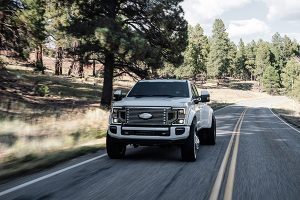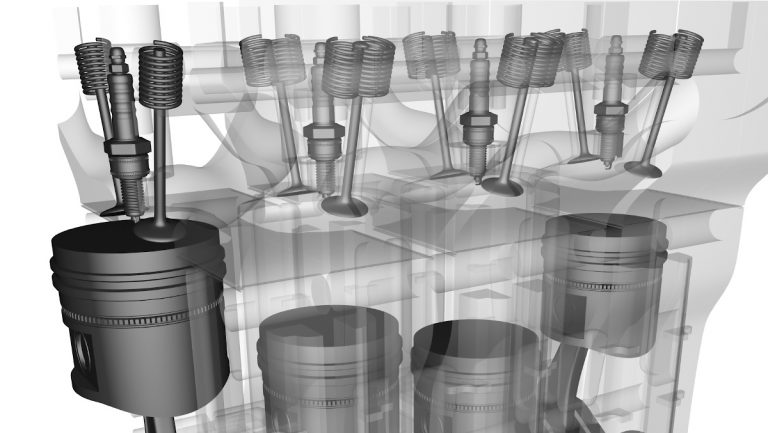Hardworking truckers and diesel enthusiasts have a ton of money wrapped up in their rigs. A new semi can easily cost nearly $200,000, while turbodiesel pickups can eclipse $60,000, and more with a few modifications. For that reason, the topic of diesel regulations often elicits an earful. The good news, however, is that advances in diesel technology in response to regulations have resulted in diesel engine oil specifications that promise improved engine protection compared to previous specs.
2017 model-year diesel technology upgrade
To meet more strict fuel-economy and emissions regulations, diesels built in 2017 and later have set a new bar for diesel technology.
Engines are made with new materials, produce more horsepower and torque than ever, run much hotter, operate under higher boost pressure and can burn up to 20 percent biodiesel.
These advances are great for diesel owners, but they place new demands on diesel oil. And these demands come in addition to the ongoing requirement from enthusiasts and professionals for increased engine protection.
Upgraded protection for older & newer diesels
Meeting the demands of the latest diesel engines means engine oil must offer increased protection compared to prior generations of oil technology.
This added performance applies to older diesel vehicles as well as 2017 model-year and newer diesels.
Diesel engine oil specifications (API CK-4 & FA-4) take divergent paths
To meet regulations for increased fuel economy and reduced emissions, 2017 model-year and later diesels rely on a combination of engine technology and unique oil technology. Some can use oils formulated with a lower viscosity than traditionally used (e.g. 15W-40) to meet the demand for increased fuel economy and reduced emissions without sacrificing wear protection.
The American Petroleum Institute (API) has established its FA-4 performance specification for 2017 and newer diesels. Due to the oil technology needed to meet low-viscosity requirements, API FA-4 oils can NOT be used in diesel engines made prior to 2017 unless recommended by the engine manufacturer.
For 2017 model-year and older diesels, where the engine manufacturer does not allow for use of FA-4 oils, the API has established its CK-4 specification.
The following table outlines the two specifications. Note that model-year recommendations are a guideline – check the owner’s manual for specific requirements.
API CK-4 & FA-4 Diesel Engine Oil Specifications
[wptb id=13395]While two diesel oil specifications complicates things, these upgrades help independent trucking companies and contractors reduce maintenance costs and extend equipment life, which enables them to compete profitably in markets that demand peak reliability and efficiency.
To find the right AMSOIL synthetic diesel oil for your application, head over to AMSOIL.com and use our Product Guide.
Updated. Originally published Aug. 31, 2016.






Does Amsoil have a diesel oil that meets the new CK-4 spec?
Hi Greg,
We’re introducing two new diesel oil lines that are recommended for API CK-4: AMSOIL Signature Series Max-Duty Synthetic Diesel Oil and AMSOIL Heavy-Duty Synthetic Diesel Oil. Look for them Feb. 6.
John
How does Amsoil get their CK-4 oil approved my manufacturers of 2016 and older diesels? I have a 2016 MB Sprinter V6 BlueTec. My only approved oil spec is MB228.51, MB229.31 and MB229.51. I think MB229.52 0w-30 is for 2017s.
Will MB approve your CK-4 oil and make an announcement so it would be backed by the 5yr 100,000 mile warranty?
Hi Tom,
Thanks for your question. We understand your concern about meeting the requirements of MB and how it relates to licensing.
Our philosophy has always been to set a target for quality and formulate products that meet that target. Licensing to OEM standards is a voluntary certification that only sets minimum quality standards. Because it is a standard, licensing limits the flexibility we need to quickly adopt new technologies that can improve protection. Many diesel enthusiasts and people who depend on their diesel to make a living focus more on protection than on lubricant specifications. We are in that camp.
That is why we use specifications like the MB specs you mention as the minimum and engineer protection into our products that goes beyond OEM or industry standards. We want to give customers the most protection we can, and sometimes that requires opting out of a licensing program. You can rest assured your equipment is protected, and we back you up with our warranty.
But if I use your product and it is not listed as being approved I void my 5year 100,000 mile warranty on my MB BlueTec engine. I am not sure I can take that leap of blind faith.
Tom,
Not true. An OEM cannot deny warranty coverage based on the brand of oil you use. Call AMSOIL Tech Services at 715-399-TECH and they can explain it to you.
Ford Shuns New API Heavy-duty Oils
By Steve Swedberg • November 9, 2016
“In a surprise move, Ford has issued a new diesel engine oil service fill specification, WSS-M2C171-F1, covering all Ford diesel engines. This specification specifically disallows the use of API CK-4 and FA-4 categories, which were adopted by the auto and lubricant industries earlier this year.”
How can I trust that this new Amsoil CK-4 formulation is “everything to everybody” if Ford is bulking at whatever makes a lubricant a CK-4 class oil??? Amsoil needs to keep a CJ-4 oil in production just like they have with CI-4+ in the Heavy Duty Diesel and Marine formulation. I’m fully aware that Amsoil CK-4 is claiming that it meets WSS-M2C171-F1. But, as I have stated, I am concerned that this new product has to fall short somewhere to excel somewhere else for the new motors at the expense of my 2016 Powerstroke’s wear protection.
Hi Christopher,
Thank you for contacting AMSOIL with respect to our new diesel oil product lines. Although your concern is warranted, we formulated our products to exceed the WSS-M2C171-F1 specification. The issue Ford has with some CK-4 formulations, and not all of them, is some oil marketers have reduced the level of ZDDP in their formulas. ZDDP is an anti-wear additive and Ford has experienced some accelerated valve-train wear with some CK-4 formulas with low levels of ZDDP. AMSOIL was well aware of this prior to Ford making their statement public, which is why we have ZDDP levels well beyond the WSS-M2C171-F1 specification. You can feel confident that our new CK-4 products are very well suited for your 2016 Powerstroke, providing you outstanding engine protection.
I fully realize that FA-4 oils are NOT backward compatible, but their is virtually no information whether a CK-4 could be used in lieu of FA-4 in one of the newer engines that have a FA-4 recommendation. CK-4 is all over the place now, and there indeed could be an issue with FA-4 availability everywhere, especially as it pertains to commercial heavy trucking. I have heard that, while FA-4 cannot be used in previous engines, CK-4 could be used in an FA-4 recommended engine. Is there truth to that speculation?
Hello Cliff,
The industry has been preparing for this change for some time and is prepared to meet the demands of the 2017 vehicles requiring FA-4. While there may be instances where an OEM will allow CK-4 products to be used in place of FA-4, this should not be a direct substitute and you should refer to your owner’s manual to see if your manufacture will allow CK-4 to be used in place of FA-4.
Could you please tell me which of your CK-4 products could be used in a sprinter diesel that makes many short trips in a small town? Temperature range throughout the year Is between 30 and 75°F.
And for the same engine which of your products could be used for extended 2 to 3 week trips to warmer climates?
Thanks in advance.
Hi Kathryn,
Most Sprinter diesels take our European oils due to the specifications they require. Check out our Product Guide for the correct oils to use in your Sprinter.
Thanks,
John